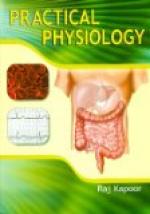Adductor (Lat. adduco, to draw to). A muscle which draws towards the middle line of the body, or of the hand or foot.
Adenoid (Gr. aden, a gland). Tissue resembling gland tissue.
Afferent (Lat. ad, to, and fero, to convey). Vessels or nerves carrying the contents or impulses from the periphery to the center.
Albumen, or Albumin (Lat. albus, white). An animal substance resembling the white of an egg.
Albuminuria. A combination of the words “albumin” and “urine.” Presence of albumen in the urine.
Aliment (Lat. alo, to nourish). That which affords nourishment; food.
Alimentary (Lat. alimentum, food). Pertaining to aliment, or food.
Alimentary Canal (Lat. alimentum). The tube in which the food is digested or prepared for reception into the blood.
Alkali (Arabic al kali, the soda plant). A name given to certain substances, such as soda, potash, and the like, which have the power of combining with acids.
Alveolar (Lat. alveolus, a little hollow). Pertaining to the alveoli, the cavities for the reception of the teeth.
Amoeba (Gr. ameibo, to change). A single-celled, protoplasmic organism, which is constantly changing its form by protrusions and withdrawals of its substance.
Amoeboid. Like an amoeba.
Ampulla (Lat. ampulla, a wine-flask). The dilated part of the semicircular canals of the internal ear.
Anabolism (Gr. anaballo, to throw or build up). The process by means of which simpler elements are built up into more complex.
Anaesthetics (Gr. an, without, and aisthesia, feeling). Those medicinal agents which prevent the feeling of pain, such as chloroform, ether, laughing-gas, etc.
Anastomosis (Gr. ana, by, and stoma, a mouth). The intercommunication of vessels.
Anatomy (Gr. anatemno, to cut up). The science which describes the structure of living things. The word literally means dissection.
Antiseptic (Lat. anti, against, and sepsis, poison). Opposing or counter-acting putrefaction.
Antrum (Lat. antrum, a cave). The cavity in the upper jaw.
Aorta (Gr. aorte, from aeipo, to raise up). The great artery that rises up from the left ventricle of the heart.
Aponeurosis (Gr. apo, from, and neuron, a nerve). A fibrous membranous expansion of a tendon; the nerves and tendons were formerly thought to be identical structures, both appearing as white cords.
Apoplexy (Gr. apoplechia, a sudden stroke). The escape of blood from a ruptured blood-vessel into the substance of the brain.
Apparatus. A number of organs of various sizes and structures working together for some special object.
Appendages (Lat. ad and pendeo, to hang from). Something connected with a part.




